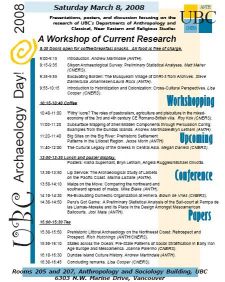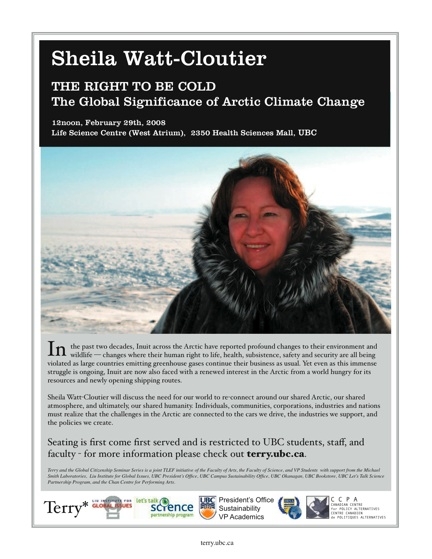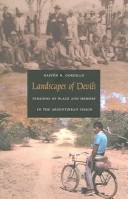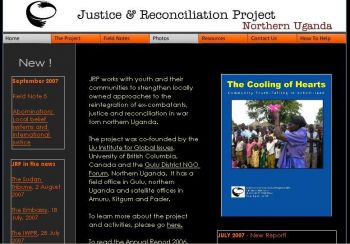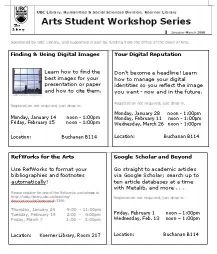
The new Faculty of Arts Outreach schedule for this term is out. This semester’s workshops are on the theme of intellectual property in a digital environment, and include workshops on Refworks, Google Scholar/Metalib, plus two new workshops: the first on finding and attributing digital images in papers and presentations, and the second on preserving your digital reputation.
For more information, you can download the flyer here, or click the “Continue reading…” link below for descriptions, dates, and locations.
Finding & Using Digital Images
Learn how to find the best images for your presentation or paper and how to cite them.
Monday, January 14, noon – 1:00pm
Friday, February 15, noon – 1:00pm
Your Digital Reputation
Don’t become a headline! Learn how to manage your digital identities so you reflect the image you want – now and in the future.
Monday, January 28 noon – 1:00pm
Monday, February 11 noon – 1:00pm
Wednesday, March 26 noon – 1:00pm
RefWorks for the Arts
Use RefWorks to format your bibliographies and footnotes automatically!
Thursday, January 24 9:00 – 11:00pm
Tuesday, February 19 2:00 – 4:00pm
Friday, March 7 1:00 – 3:00pm
Please register for one of the Refworks workshops at http://toby.library.ubc.ca/booking/
description.cfm?sessionid=5194
Location: Koerner Library, Room 217
Google Scholar and Beyond
Go straight to academic articles via Google Scholar; search up to ten article databases at a time with Metalib, and more . . .
Friday, February 1 noon – 1:00pm
Wednesday, Feb. 13 noon – 1:00pm
All sessions in Buchanan B114 , with the exception of RefWorks (Koerner 217).
Sponsored by UBC Library, and supported in part by funding from the Office of the Dean of Arts.
